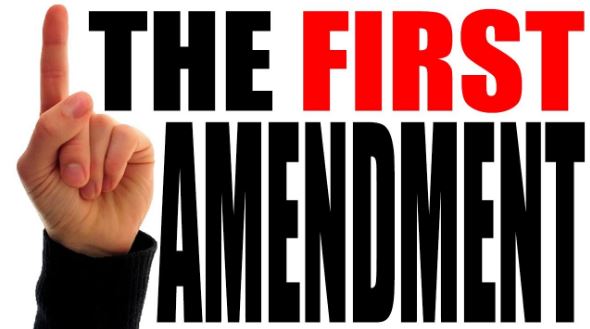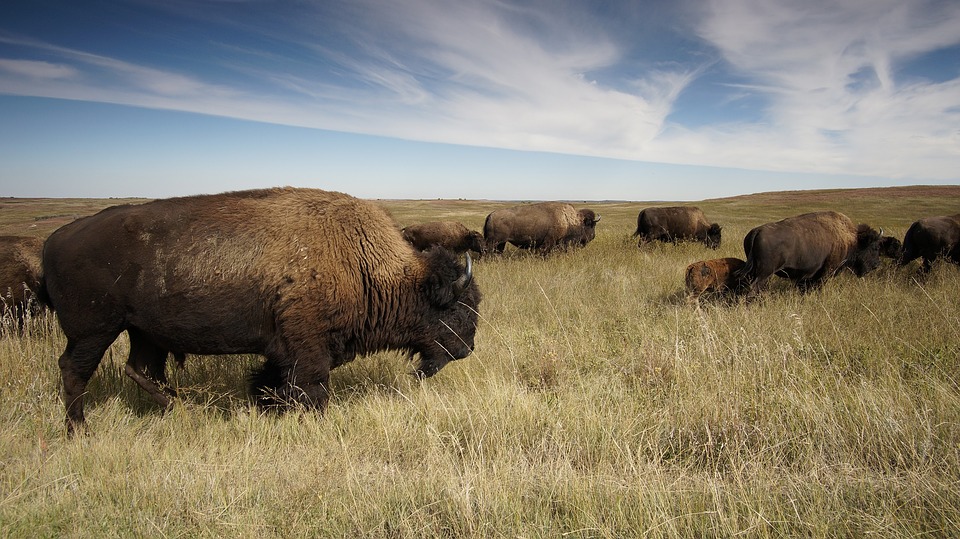PLC and Legal Community Comment on the Range Allotment Owners Association
[Please refer to the added, numbered and underlined phrases addressed in the comments listed below]
 WASHINGTON (Feb. 20, 2017) — Ethan Lane, executive director of the Public Lands Council, today released the following statement and open letter regarding the Range Allotment Owners Association:
WASHINGTON (Feb. 20, 2017) — Ethan Lane, executive director of the Public Lands Council, today released the following statement and open letter regarding the Range Allotment Owners Association:
“The Public Lands Council is the only organization in Washington, DC, (1) who solely represents the 22,000 ranchers who operate on public lands. Since 1968, (2) PLC has had boots on the ground in the halls of Congress and the federal land management agencies, working to ensure that rancher’s voices are heard.
(3) “Recently, a group has materialized, claiming to be the only organization that represents the public lands rancher. This group, called the Range Allotment Owners [RAO] Association, is advancing a compelling (4) but dangerous theory, that ranchers who hold grazing permits on public lands are not merely permittees, but allotment owners. While we at PLC fight every day for the preference and property rights of ranchers, (5) we feel that this particular theory goes beyond our legal rights and could ultimately result in the loss of permits and subsequent destruction of family ranches.
(6) “We are lucky in this industry to have a deep bench of legal talent that is focused on our issues and represent our interests in the courts. These assembled legal minds have released the following open letter on this general topic, which we present to you independent of our opinions and analysis. (7) That so many of the names on the attached letter will be familiar to you is a testament to their commitment to our industry and their years of work on behalf of ranchers.”
Comments on numbered items above; by Tim K Smith, Harney Co,, Oregon
- “who solely represents the 22,000 ranchers who operate on public lands”. When I first read this statement my thought was “who is PLC trying to sell this to”? Efforts to offer alternative detail, thought and discussion on resource rights has clearly touched a raw nerve with the PLC/Cattlemen’s Associations. There are groups in essentially every rural community who are working to improve the lot of grazers and resource users on currently Federally managed lands. This verbiage smacks of a defensive position for the organization rather than a recognition and welcoming of other efforts to benefit the ranchers and resource users. The decline in the associations’ numbers and the significant loss of grazing numbers across the West give a hint as to the effectiveness of their work and reasoning behind their fear of new rancher support groups.
- “PLC has had boots on the ground in the halls of Congress and the federal land management agencies,” Boots on the ground in DC does nothing to help educate individual ranchers and resource users about their existing rights or unify them to the point where they can stand up for their individual rights and economic security. When did we give away our individual voice and responsibility for our own welfare to any group? We all need to regain our sense of independence from absentee government and politically motivated administrators and attorneys. To be educated and independent is our civic duty and our duty to our families and neighbors, which is not to be farmed out to anyone who may or may not have lost sight of their original purpose and our inherent freedoms. Education will allow ranchers and resource users to better know how and when to reach out to groups like PLC and Cattlemen’s Associations and their assets.
- “Recently, a group has materialized, claiming to be the only organization that represents the public lands rancher. I have been watching, and been supportive of, the RAO’s goals and claims since its inception. Not one time have I ever heard or seen it claim “to be the only organization that represents the public lands rancher”. In contrast, RAO and its associates have reached out to various land rights groups, cattlemen’s associations, agencies and legislative bodies and invited them to the discussion regarding the need for education and information about the status of “public lands” and land rights. This past year it became clear that ranchers were uncomfortable about their rights to the point of being intimidated away from getting into conflict with the Federal agencies. In my observation this is what led to the formation of RAO. Unification and cooperation of existing resource advocacy groups has always been a desire of the founders and supporters of RAO. In addition, PLC’s blithe use of the term “public lands” here shows the need for education as to what the term “public land” means and how often the term is misused and overused.
- “but dangerous theory, that ranchers who hold grazing permits on public lands are not merely permittees, but allotment owners”. What is the danger here? Is the danger that ranchers will become educated enough to understand when they can stand up for themselves vs when they need to submit? Is the danger that if better educated, the ranchers will still not be smart enough or judicious enough to know what information can or will fit their operation and whether or not to use it to their benefit? Or…Is the danger that if ranchers become informed and more unified they will be able to stand up for themselves as individuals or as unified force and not need a fleet of lawyers? My background is in in mining so I will use this common sense example. A mining claim is to mining as a grazing allotment is to livestock grazing. Without question a mining claim is real property and can be bought or sold or inherited as a real property asset. It obviously travel with the land as well. Why is it then that a grazing allotment is purported by the government and the PLC as not a real property asset? It travels with the land as well. It seems that it is because that’s what the government has said and what the lawyers have accepted and not what the intent of the various Congressional Acts have intended. This discussion must be rejoined and settled, not simply disregarded.
- “we feel that this particular theory goes beyond our legal rights”. I am glad they used this term “feel”. This is a classic term used by the left or a person or group in a problematic intellectual position when they do not “know”. Again I will say here, educate and unify significant numbers of our resource users and then let them make the decision as to whether or not their rights are being upheld or abused by the managing agency. They then can determine their best course of action and not just suck it up and continue to be “managed at will”.
 “We are lucky in this industry to have a deep bench of legal talent”. When I read this I had to think, this is like saying; I know I have symptoms of a disease that may be curable but thank goodness there are lots of good doctors out there so I will just treat the symptoms and go after the disease later. How about we define the disease, define the treatment and complete the cure??
“We are lucky in this industry to have a deep bench of legal talent”. When I read this I had to think, this is like saying; I know I have symptoms of a disease that may be curable but thank goodness there are lots of good doctors out there so I will just treat the symptoms and go after the disease later. How about we define the disease, define the treatment and complete the cure??- “That so many of the names on the attached letter will be familiar to you is a testament to their commitment”. This statement makes it clear that the approach by PLC and the fleets of attorneys out there is to treat the symptom and not really go after the disease. In my opinion the disease here is twofold. (a) The short term lack of understanding of the rights inherent on split estate lands currently under Federal management, and; (b) the long term poorly managed Federally controlled lands which could be better managed ecologically, economically, and flexibly under more local jurisdiction. While there may be some young attorneys out there who are dedicated to the cause of a better and more productive use of our resources, in the long term attorneys get promoted to make money for their firms. There is no long term incentive for them to permanently cure the disease.




You might want to read the latest ruling on the Hage case that completely repudiates the ideas that RAO spouts. http://www.eenews.net/assets/2017/03/01/document_gw_03.pdf
“Defendants have no property right on the federal lands at issue in this case that includes a right to graze livestock on those lands, nor exempts Defendants from the requirement that they obtain federal authorization to place livestock on federal lands. See Hunter, 388 F.2d at 154.”
I’m sorry to tell you this but there is no way that my grazing permit can be classified as real property. Is it an asset that has market value? You bet it has, but it cannot be taken as primary collateral for a real estate loan. I’ll tell you what, you are the same type of folks who try and tell us that paying federal income taxes is voluntary or unconstitutional and that law enforcement officers can’t issue speeding tickets. We can all agree the system is broken and not working for us. What you are going to do if cause all of us ranchers to lose our grazing over a pipe dream of how you wish thing should be. I’ve sat back and listen to both sides of this. I’ve also seen first hand how hard the staff at PLC work for ranchers in the West.
You’re missing the fundamental distinction between a grazing permit and a grazing allotment. But since you seem to be interersted in these issues, what is your take on malum in se versus malum prohibitum? That distinction likewise seems relevant to this conversation.
You are arguing semantics. An allotment is a physical description of where my grazing permits are located. What PLC does is hold the federal agencies accountable in following the laws as they were originally intended. That is a monumental task and they attack it with a very small but capable staff and limited budget.
So let’s not argue semantics. Does PLC believe in property rights? Or just “privileges.” What “rights”, if any, does PLC stand up for, and fight for?
Chris Zinda should come clean on his bias and conflict of interest, being married to Heather Whitman, who works for the increasingly controversial Bureau of Land Management and most recently served as the director of the BLM Color Country district office in Iron County, Utah.
All I can say is when it comes to Chris Zinda, PLC and its lawyers, consider the sources. They all have their own separate, government-controlled, environmental agenda. They are all tainted sources. Take everything they all say with a grain of salt.